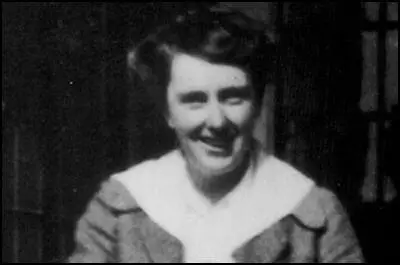On this day on 19th December
On this day in 1783 George III appointed William Pitt as Prime Minister. The dismissal by the King of a government with a clear majority, was unconstitutional and a total violation of the settlement of 1688. Pitt, at twenty-four, was by far the youngest Prime Minister in British history.
In 1785 Pitt attempted to reform the House of Commons. His bill proposed to remove 36 rotten boroughs and create new seats for London. It also would also marginally extended the vote to people with estates in the counties worth 40 shillings or more. Parliament voted by 248 votes to 174 not to debate the bill. Even the Prime Minister could not persuade a Parliament to consider the mildest reform to the corruption that secured their seats.
Thomas Paine continued to write on political issues and in 1791 published his most influential work, The Rights of Man. In the book Paine attacked hereditary government and argued for equal political rights. Paine suggested that all men over twenty-one in Britain should be given the vote and this would result in a House of Commons willing to pass laws favourable to the majority. "The whole system of representation is now, in this country, only a convenient handle for despotism, they need not complain, for they are as well represented as a numerous class of hard-working mechanics, who pay for the support of royalty when they can scarcely stop their children's mouths with bread."
The book also recommended progressive taxation, family allowances, old age pensions, maternity grants and the abolition of the House of Lords. Paine also argued that a reformed Parliament would reduce the possibility of going to war. "Whatever is the cause of taxes to a Nation becomes also the means of revenue to a Government. Every war terminates with an addition of taxes, and consequently with an addition of revenue; and in any event of war, in the manner they are now commenced and concluded, the power and interest of Governments are increased. War, therefore, from its productiveness, as it easily furnishes the pretence of necessity for taxes and appointments to places and offices, becomes a principal part of the system of old Governments; and to establish any mode to abolish war, however advantageous it might be to Nations, would be to take from such Government the most lucrative of its branches. The frivolous matters upon which war is made show the disposition and avidity of Governments to uphold the system of war, and betray the motives upon which they act."
The British government was outraged by Paine's book and it was immediately banned. Paine was charged with seditious libel but he escaped to France before he could be arrested. Paine announced that he did not wish to make a profit from The Rights of Man and anyone had the right to reprint his book. It was printed in cheap editions so that it could achieve a working class readership. Although the book was banned, during the next two years over 200,000 people in Britain managed to buy a copy. By the time he had died, it is estimated that over 1,500,000 copies of the book had been sold in Europe.
Mary Wollstonecraft had been converted to Unitaranism by Richard Price. She read Paine's book and in response published Vindication of the Rights of Women. In the book Wollstonecraft attacked the educational restrictions that kept women in a state of "ignorance and slavish dependence." She was especially critical of a society that encouraged women to be "docile and attentive to their looks to the exclusion of all else." Wollstonecraft described marriage as "legal prostitution" and added that women "may be convenient slaves, but slavery will have its constant effect, degrading the master and the abject dependent."
The ideas in Wollstonecraft's book were truly revolutionary and caused tremendous controversy. One critic described Wollstonecraft as a "hyena in petticoats". Mary Wollstonecraft argued that to obtain social equality society must rid itself of the monarchy as well as the church and military hierarchies. Mary Wollstonecraft's views even shocked fellow radicals. Whereas advocates of parliamentary reform such as Jeremy Bentham and John Cartwright had rejected the idea of female suffrage, Wollstonecraft argued that the rights of man and the rights of women were one and the same thing.
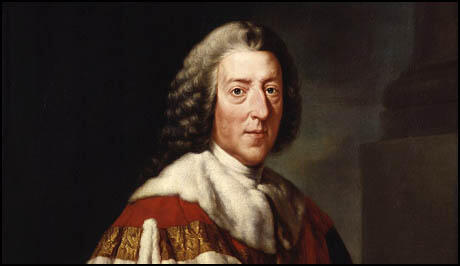
On this day in 1820 Mary Ashton Rice was born in Boston. A deeply religious person, Mary read the entire Bible every year until she was twenty-three. In 1839 she found work as a tutor on a Virginia plantation. During the next three years she observed the way that slaves on the plantation were treated and this turned her into a strong opponent of slavery.
In 1842 Mary took charge of a private school in Duxbury, Massachusetts. She worked at the school for three years before marrying Daniel Livermore, a Universalist minister, in May, 1845. For the next three years the couple worked amongst factory workers providing education and health care.
In 1857 the family moved to Chicago and Mary Livermore worked as associate editor of the religious publication, the New Covenant. She also published a collection of essays entitled Pen Pictures. A strong supporter of the Republican Party, Livermore campaigned for Abraham Lincoln in the 1860 presidential election.
Livermore did relief work during the American Civil War and after a tour of military hospitals, she joined the U.S. Sanitary Commission in Chicago. Working with her friend, Jane Hoge, she organized a Sanitary Fair which raised more than $70,000. Later she was appointed as an agent of securing money and supplies. Livermore worked closely with Mary Ann Bickerdyke who was chief of nursing under the command of General Ulysses S. Grant and General William T. Sherman during the Atlanta Campaign.
An active supporter of women's rights, Livermore organized the Chicago Woman Suffrage Convention in 1868. She was also editor of the feminist journal, The Agitator (1868-70).
Along with Lucy Stone and Julia Ward Howe, Livermore co-edited The Women's Journal (1870-72). A founder member of the American Woman Suffrage Association, Livermore was president of the organization between 1875 and 1878. Livermore was also one of the leaders of the Women's Christian Temperance Union (WCTU).
Livermore wrote several books including My Story of the War: A Woman's Narrative of Four Years Personal Experience (1887) and The Story of My Life: The Sunshine and Shadow of Seventy Years (1897). Livermore was also joint editor with Francis E. Willard of a collection of biographies, A Woman of the Century (1893). Mary Livermore died in Melrose, Massachusetts, on 23rd May, 1905.
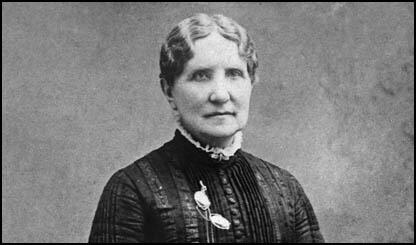
On this day in 1851 Joseph Mallord William Turner died. Turner, the son of a barber and wigmaker, was born in London in 1775. As a child Turner made money by colouring engravings for his father's customers. At the age of 14 he entered the Royal Academy. He exhibited his first drawing, A View of the Archbishop's Palace in Lambeth in 1790. Two years later he providing illustrations for the Copperplate Magazine and the Pocket Magazine.
In 1792 Turner went on his first sketching tour. Most of his pictures during this period were cathedrals, abbeys, bridges and towns but in 1796 he became interested in painting pictures of the sea. He also began touring with his artist friend, Thomas Girton.
By 1800 Turner was acknowledged as one of Britain's leading topographical watercolourist. He received several commissions to illustrate books. His artistic ability was recognised when he was elected an associate of the Royal Academy.
In 1803 Turner's style changed. His impressionistic Calais Pier was criticised as being unfinished. For the next few years he was attacked by the critics and he had difficulty selling his paintings. One critic called Turner's landscapes "pictures of nothing, and very alike." Turner had his supporters, including John Ruskin, who described his paintings as "true, beautiful and intellectual".
In 1844 Turner turned his attention to railways and painted Rain, Steam and Speed - The Great Western Railway. J. M. W. Turner died at his cottage in Chelsea in 1851. He left some three hundred paintings and nineteen thousand watercolours to the nation.
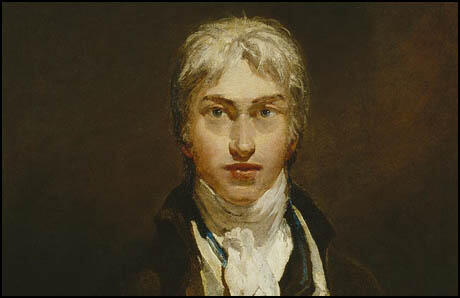
On this day in 1870 cartoonist Frederick Pegram, the son of Alfred Pegram, a cabinet maker, was born in Somers Town. At the age of fifteen he studied at the Westminster School of Art. Fellow students included Henry Tonks, Aubrey Beardsley and Maurice Greiffenhagen. He joined the staff of the The Pall Mall Gazette and in 1894 began contributing to Punch Magazine.
Books illustrated by Pegram include Poor Jack (1897), At the Rising of the Moon (1898), London's World Fair (1898), The Orange Girl (1899) and Martin Chuzzlewick (1900). He also produced cartoons for The Idler, Illustrated London News, The Tatler, and The Daily Chronicle.
During the First World War Pegram served as a Special Constable at Buckingham Palace. He also produced a large number of cartoons for various magazines during the war. According to Mark Bryant Pegram used a "Brandaner 515 nib and also painted, drew portraits in pencil, watercolour, chalk and pastel, and etched."
Pegram designed advertisements for Mackintosh's Toffee, Player's Cigarettes, Ronuk Polish, Selfridges, etc., and created the famous Kodak Girl. R.G.G. Price, the author of A History of Punch (1957) has argued: "Even if his jokes and his milieu became increasingly stereotyped, his draughtsmanship as late as the early Thirties was still capable of giving a thrill of pleasure."
Frederick Pegram, who was the cousin of Henry M. Brock and the brother-in-law of F. W. Townsend, died of lung cancer on 23rd August 1937.
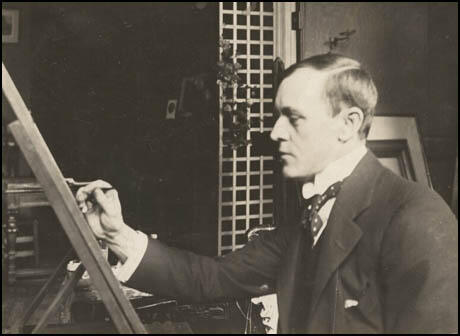
On this day in 1914 Private H. F. Leppard wrote a letter to his mother that explains life on the Western Front. "The soldiers at the front need more rest. While in the trenches the water is over our knees most of the time. The war is going to last some time yet, and might be another twelve months before it is over. The war has only just begun and its going to be a war of exhaustion. After the regular armies have done their work it means that all the young lads at home being trained and disciplined and will take our place in the field. The sooner people understand this, the better, it will be for the nation."
Twelve and a half million letters were sent to the Western Front every week. In 1914 the Postal Section of the Royal Engineers had a staff of 250 men. By 1918 the Army Postal Service employed 4,000 soldiers. Letters only took two or three days to arrive from Britain. Even soldiers in the front line trenches received daily deliveries of letters.
Soldiers were also encouraged to write letters to friends and family in Britain. Most men decided it would be better to conceal the horrors of the trench warfare. As a result of the Defence of the Realm Act that was passed in 1914, all letters that the men wrote should have been read and censored by junior officers.
On this day in 1941 Elsie Clews Parsons died. Elsie Clews, the daughter of Henry Clews, was born in New York City on 27th November, 1875. Her family were extremely rich and she was educated in expensive private schools before attending Barnard College where she was taught by Franz Boas.
In 1900 she married Herbert Parsons, a New York attorney. Elsie Clews Parsons lectured in sociology at Barnard until her husband was elected to Congress in 1905. She now moved to Washington and concentrated on writing. Her first book, The Family, was published in 1906.
Parsons also contributed to The Nation as well as publishing Religious Chastity (1913), The Old Fashioned Woman (1913), Fear and Conventionality (1914), Social Freedom (1915) and Social Rule (1916). Parsons held radical political views and was a strong supporter of women's suffrage. During the First World War she was an active member of the Woman's Peace Party.
In 1918 Elsie Clews Parsons became associate editor of the Journal of American Folklore. She also published several books on the subject including Folk-Tales of Andros Island (1918), Folk-Lore from the Cape Verde Islands (1923), Folklore of the Sea Islands, South Carolina (1923), The Social Organization of the Tewa of New Mexico (1929), Hopi and Zuni Ceremonialism (1933) and Folk-Lore of the Antilles, French and English (1933).
Inspired by the work of Frank Boas, Parsons became interested in anthropology. After many years of field research in North America, Mexico, South America, and the Caribbean and eventually published Mitla: Town of the Souls (1936) and Pueblo Indian Religion (1939).
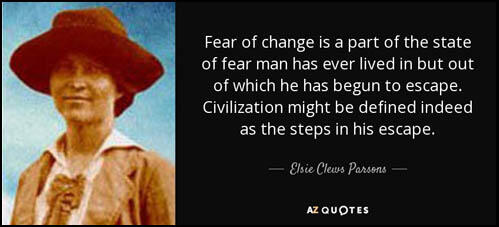
On this day in 1945 John Amery was hanged for treason. John Amery, the son of Leo Amery, was born on 14th March, 1912. He was educated at Harrow. A report pointed out: "At Harrow he resented discipline and scoffed at the current conventions. He stole from shops and from other boys, absconded at nights to visit a night club and to tout for night club clients." The headmaster at the school, Cyril Norwood, argued: "Of all the boys whom I have known. John Amery was the most abnormal. Just because John Amery was morally imbecile it was not possible to make anything of him at Harrow".
After finishing his education he went into business but was declared bankrupt in 1936. By this time he had acquired seventy-four convictions for motoring offences. In October 1936 Amery moved to Spain where he worked as a gun-runner for General Francisco Franco during the Spanish Civil War. He also served as an intelligence officer with Italian volunteer forces. Amery also met Jacques Doriot the French fascist leader.
After the war Amery and Doriot travelled together to Austria, Czechoslovakia, Italy and Germany before going to live in France. In 1941 Amery was recruited by the Nazis and began making pro Adolf Hitler broadcasts in Berlin. On 19th November, 1942, he stated: "Listeners will wonder what an Englishman is doing on the German radio tonight. You can imagine that before taking this step I hoped that someone better qualified than me would come forward. I dared to believe that some ray of common sense, some appreciation of our priceless civilization would guide the counsels of Mr Churchill's Government. Unfortunately this has not been the case! For two years living in a neutral country I have been able to see through the haze of propaganda to reach something which my conscience tells me is the truth. That is why I come forward tonight without any political label, without any bias, but just simply as an Englishman to say to you: a crime is being committed against civilization. Not only the priceless heritage of our fathers, of our seamen, of our Empire builders is being thrown away in a war that serves no British interests - but our alliance leader Stalin dreams of nothing but the destruction of that heritage of our fathers? Morally this is a stain on our honour, practically it can only lead sooner or later to disaster and Communism in Great Britain, to a disintegration of all the values we cherish most."
In April 1943 Amery established the Legion of St. George and attempted to persuade British prisoners to fight for Germany against the Soviet Union on the Eastern Front. This was embarrassing for Leo Amery who served as secretary of state for India and Burma during the Second World War.
In the final months of the war Amery moved to Italy where he made propaganda speeches on behalf of Benito Mussolini. He also made broadcasts on Italian radio. Amery was captured by Italian partisans in Milan in April 1945, and soon afterwards was handed over to the British authorities.
His father, Leo Amery, a member of the British government, commissioned Dr. Edward Glover to write a psychiatric report on John Amery. He reported that: "John Amery has exhibited throughout his life all the symptoms of psychopathy of a type which borders on the schizoid (psychotic) character and which under ordinary circumstances ends in compulsive delinquent and anti-social conduct... The whole picture is completely characteristic of severe psychiapathy negativism, unteachability, fear of attack of a paranoid type, antisocial behaviour, delinquency, lack of moral feeling and conscience, sexual abnormality. And so on. No element is missing."
After being interviewed by MI5 Amery was tried for high treason. On 28th November, 1945, Amery pleaded guilty to eight counts of treason. The Times reported: "Amery, who is 33, was described as a politician. He took the sentence with complete composure. He bowed to Mr. Justice Humphreys when he was brought into Court, and also after sentence had been passed. While the proceedings lasted he appeared most of the time to have half a smile on his face. After sentence had been passed he walked away with bowed head to the cells below the dock. The sudden end of the case was dramatic." It was later claimed that Amery admitted his guilt in order to save his family the pain of a long trial.
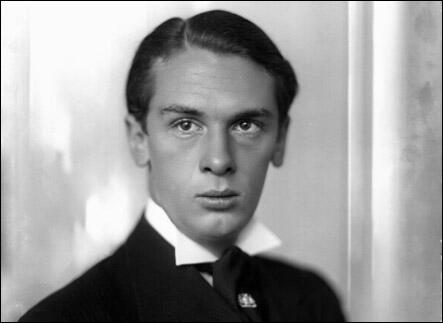
On this day in 1982 Dwight Macdonald died. Macdonald was born in New York City in 1906. After being educated at Phillips Exeter Academy and Yale University he found work as a journalist. A college friend of Henry Luce, MacDonald became a journalist on Time Magazine. Later he became associate editor of Fortune.
During the Great Depression he became a follower of Leon Trotsky. This brought him into conflict with his employer and in 1936 MacDonald resigned over the censorship of an article on U.S. Steel. The following year he became editor of Partisan Review, a magazine that was set-up as a rival of the New Masses, that was under the control of the American Communist Party.
In the early 1940s he broke with Leon Trotsky and became an anarchist. In 1944 he established Politics. This gave him the opportunity to publish writers such as Paul Goodman and C. Wright Mills. His biographer, Stephen J. Whitfield, has argued: "Politics enlisted the energies of such European writers as Simone Weil and Albert Camus, as well as refugees from Nazism and Fascism, and was distinguished by an independent effort to re-examine the categories of Marxism and the automatic allegiance to the working class or to trade unions."
After the Second World War Macdonald became concerned about the behaviour of Joseph Stalin and he became a strong opponent of the Soviet Union and like his fellow Trotskyists, Max Eastman, Bertram Wolfe and Max Shachtman, became a Cold War warrior in the 1950s.
Macdonald returned to the political left in the 1960s and was a strong opponent of the Vietnam War and other foreign adventures. During this period he was a supporter of the Students for a Democratic Society.
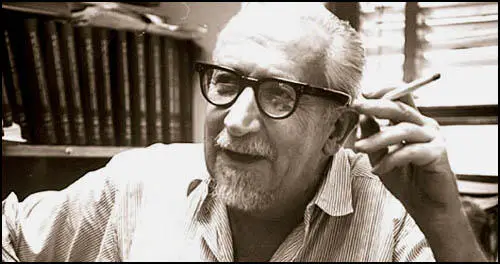
On this day in 1963 Dr. Octavia Wilberforce died.
Octavia Wilberforce, the daughter of Reginald and Anna Wilberforce, was born in East Lavington House, Petworth on 8th January 1888. Octavia was the granddaughter of Samuel Wilberforce (1805-1873), Bishop of Winchester, the son of William Wilberforce (1759-1833), the leader of the campaign against the slave trade.
According to her biographer, Pat Jalland: "Although Octavia was the least welcome of her parents' children, she recalled her childhood as happy, because she was allowed to run wild. Her education consisted primarily of sporadic lessons in music, history, and literature, from occasional tutors, with only one year of formal education at the age of sixteen."
In July 1909, Octavia met Elizabeth Robins, the campaigner for women's rights. Octavia later recalled: "It was a turning point in my life… I had always read omnivorously and longed to write myself, and to meet so distinguished an author in the flesh was a terrific adventure. It was a small family luncheon at Phyllis Buxton's house. Elizabeth Robins was dressed in a blue suit, the colour of speedwell, which matched her beautiful deep-set eyes. I was introduced as Phyllis's friend who lives near Henfield... Elizabeth Robins.... with a charming grace and in an unforgettable voice asked me if I would come to tea one day and she would show me her modest little garden."
In 1910 Octavia Wilberforce was worried about the health of her housemaid. It was suggested that she took her housemaid to see Louisa Martindale, one of the new doctors at Brighton County Hospital. Octavia became friends with Louisa and after a while decided that she would also like to be a doctor. However, her parents were totally opposed to the idea and refused to fund her studies.
Reginald Wilberforce had arranged for Octavia to marry Charles Buxton, the eldest son of Lord Buxton, a wealthy businessman and prominent politician. Octavia refused to marry Charles and insisted that she wanted a career in medicine. Her father was so angry at her decision that he cut Octavia out of his will.
When Elizabeth Robins heard of Octavia's problems, she offered to help fund her studies. Octavia went to live with Robins her 15th century farmhouse at Backsettown, near Henfield. When the British government introduced the Cat and Mouse Act in 1913, Robins used her house as a retreat for suffragettes recovering from hunger strike. It was also rumoured that the house was used as a hiding place for suffragettes on the run from the police.
In 1913 Octavia Wilberforce was able to start her course at the London School of Medicine for Women. She later recalled she was met by Elizabeth Garrett Anderson "who was white-haired and gracious, and who said something tactful about William Wilberforce's great work for the slaves." She added: "Most of the girls were younger than I was and of varied types. Some of them by doing Medicine were following in a parent's footstep; some had a definite urge, like myself, to be of the use to the community. These were subdivided into those who wished to be medical missionaries and those who had worked in the Suffrage movement."
As her biographer, Pat Jalland, has pointed out: "Only 3 per cent of qualified doctors were female in 1913 and prejudice persisted against women in private practice." During the First World War the student Octavia Wilberforce, gained valuable experience treating British casualties at St. Mary's Hospital in Paddington.
Octavia Wilberforce qualified as a doctor in 1920. After working as a clinical clerk to Dr Wilfred Harris, an outstanding neurologist, and after qualifying became his house physician in 1921 she established her own general medical practice at 24 Montpelier Crescent in 1923. Octavia joined Elizabeth Robins and Louisa Martindale in their campaign for a new fifty-bed, women's hospital in Brighton. After the New Sussex Hospital for Women in Brighton opened, Octavia became one of the three visiting doctors. Later she was appointed as the hospital's head physician.
In 1927 Octavia Wilberforce helped Elizabeth Robins and Marjorie Hubert set up a convalescent home at Backsettown, for overworked professional women. Wilberforce used the convalescent home as a means of exploring the best way of helping people to become fit and healthy. Patients were instructed not to talk about illness. Octavia believed diet was very important and patients were fed on locally produced fresh food. Whenever possible, patients were encouraged to eat their meals in the garden.
During the Second World War Octavia's long-tern companion, Elizabeth Robins went back to the United States. Octavia remained in Brighton and in 1941 treated Virginia Woolf. Her husband, Leonard Woolf, later recalled: "She (Octavia Wilberforce) had, to all intents and purposes become Virginia's doctor, and so the moment I became uneasy about Virginia's psychological health in the beginning of 1941 I told Octavia and consulted her professionally. The desperate difficulty which always presented itself when Virginia began to be threatened with a breakdown - a difficulty which occurs, I think, again and again in mental illness - was to decided how far it was safe to go in urging her to take steps - drastic steps - to ward off the attack."
At the age of eighty-eight, Elizabeth Robins returned to live with Octavia at her house in Montpelier Crescent in Brighton. One of her regular visitors was Leonard Woolf. He recalled in his autobiography, The Journey Not the Arrival Matters (1969): "Elizabeth was, I think, devoted to Octavia, but she was also devoted to Elizabeth Robins; when we first knew her, she was already a elderly woman and a dedicated egoist, but she was still a fascinating as well as an exasperating egoist."
Octavia Wilberforce retired from the New Sussex Hospital for Women in 1954, but she continued to work at Backsettown until her death on 19th December, 1964..
